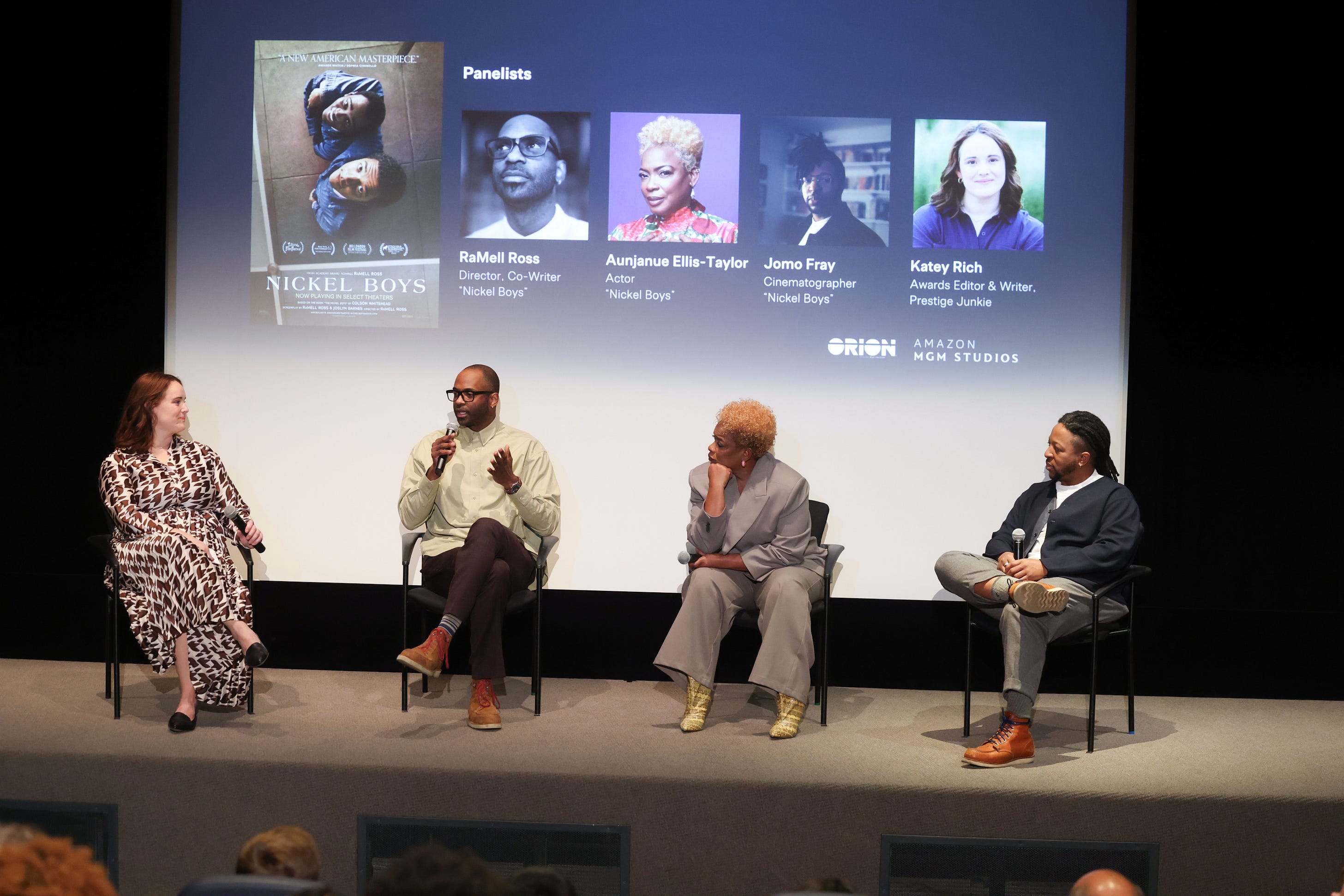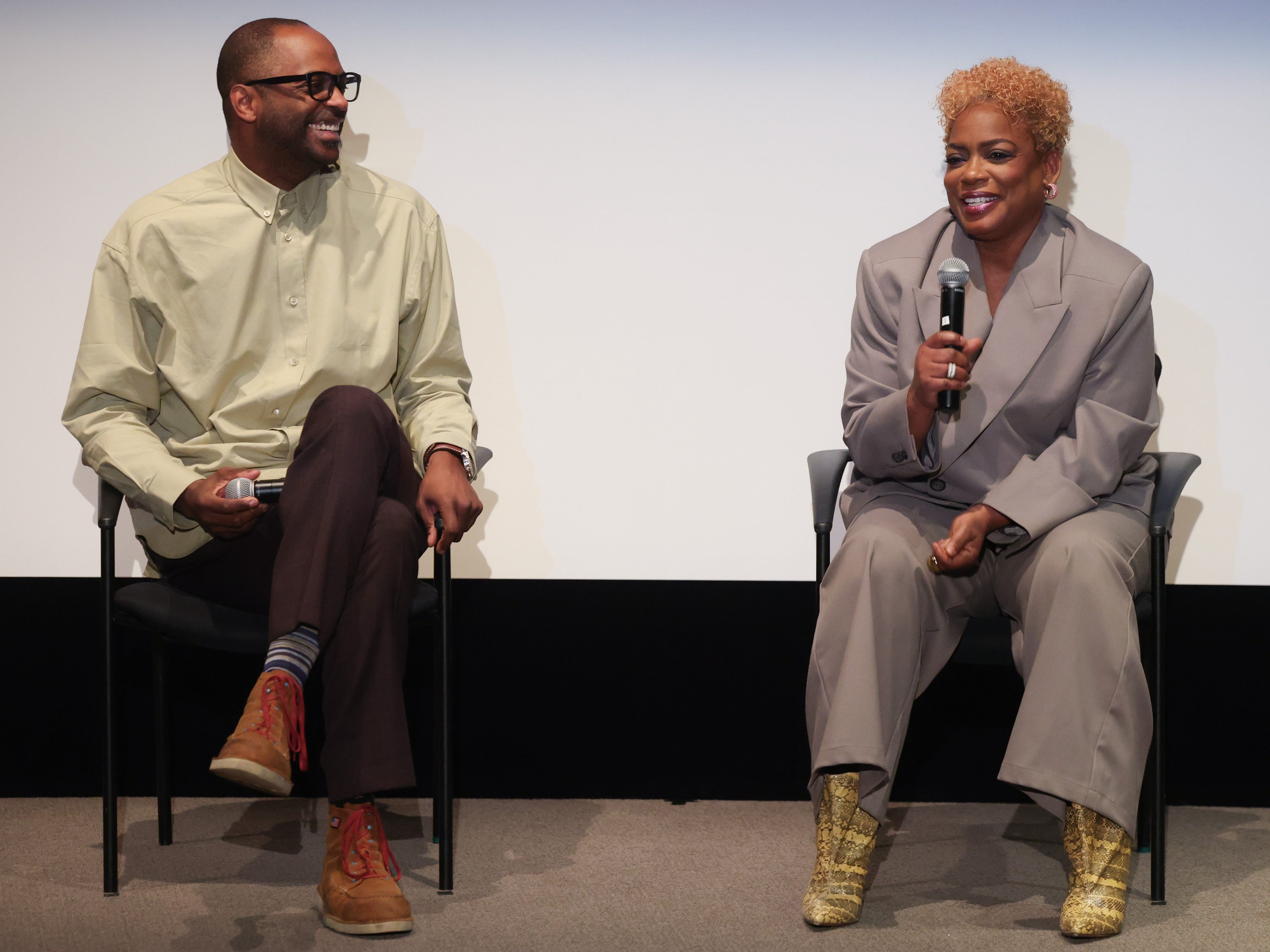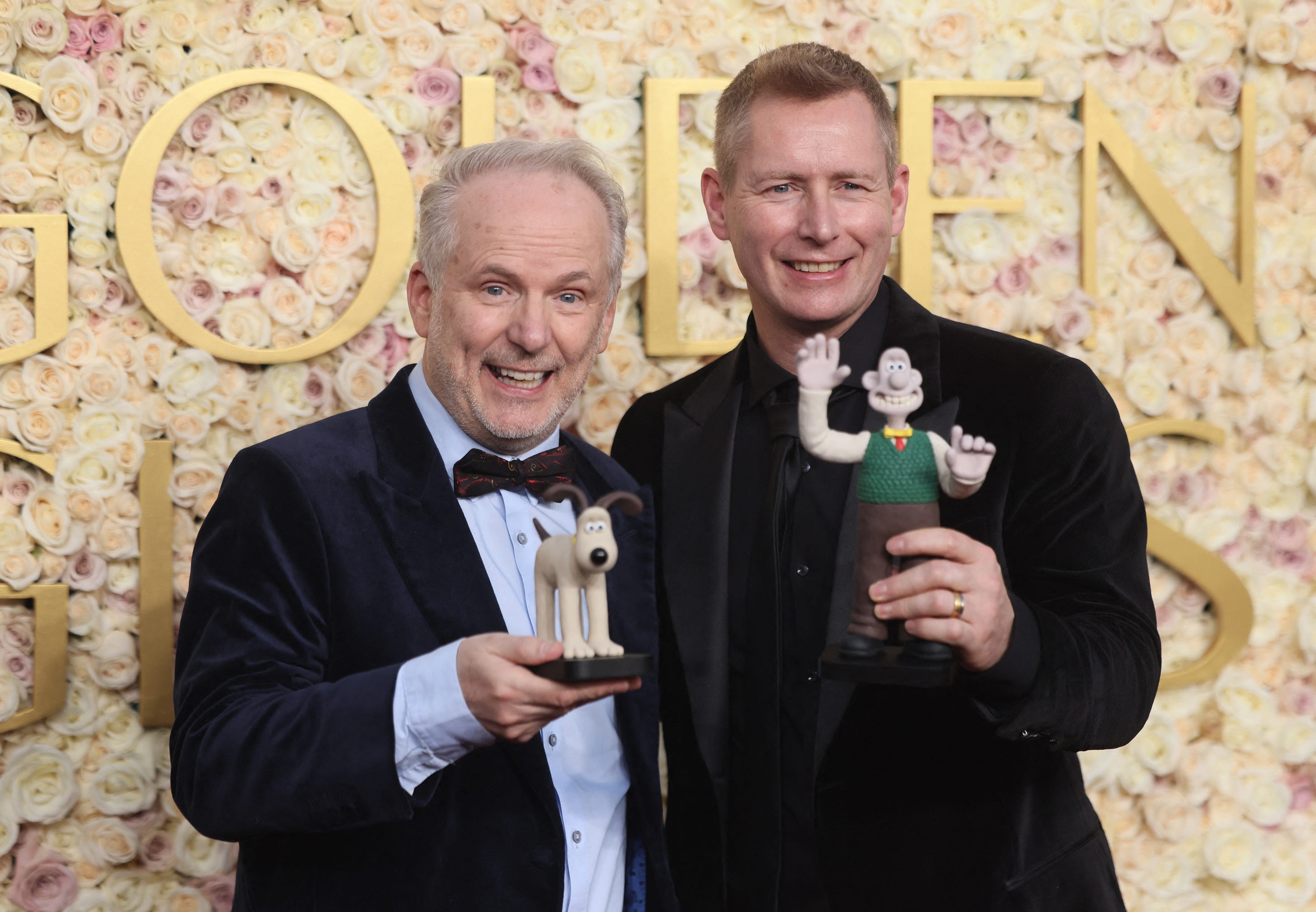'Nickel Boys' Team: 'Everything We Shot Was a Joy'Director RaMell Ross, his star and cinematographer on their film's innovative 'sentient camera'. Plus: a chat with Wallace and Gromit's Nick ParkNothing in the vicinity of Hollywood has gone unaffected by this week’s devastating wildfires — and awards season, even with its reach around the world, is no exception. The Academy announced Wednesday that the Oscar nomination voting period will be extended by two days, through Tues., Jan. 14, and that the nominations announcement will be postponed until Sunday, Jan. 19. “So many of our members and industry colleagues live and work in the Los Angeles area, and we are thinking of you,” Academy CEO Bill Kramer wrote in the e-mail outlining the changes. “Thank you for your understanding during this complex time.” Academy-sponsored events that had been scheduled for this week, primarily screenings and in-person “bake-offs” presenting shortlisted films in the crafts categories, have all been canceled. So have most of the scheduled ancillary events, from a celebratory toast hosted by Universal’s Donna Langley to Sunday’s Critics Choice Awards, now postponed until Jan. 26. “There will be more moments to come together and celebrate as a community this awards season, but our primary focus at this time is your safety,” Langley wrote in a statement. “Please take care.” All of these changes and cancellations will impact the Oscar nominations — not that anybody wants to talk about that. Even the most laser-focused awards strategists have bigger things on the brain. In Monday’s newsletter I plan to dive a little deeper on the state of the race and what we’re left with now that phase 1 — the intense campaign period before and during Oscar nominations voting — has come to an abrupt, alarming end. Right now, though, I mostly hope anyone reading this is safe, whatever “safe” can mean in our age of never-ending climate catastrophe. If you’ve got a story to share about your experience over the past week, we’re collecting them here — please get in touch. In today’s newsletter I’ve got two conversations that took place before the fires, talking to filmmakers whose unerringly creative approach to their work — in such wildly different formats, no less — gives me faith that art can keep us going. When we’re ready for it, at least. First up, a look back at my evening with some of the team behind Nickel Boys, the launch of The Ankler’s new Audience First screening series in partnership with Letterboxd. Then, my conversation with Nick Park, the four-time Oscar winner who’s back with the latest adventure for the beloved characters he created more than four decades ago, Wallace and Gromit. ‘Cinema on a Quantum Level’“The film is hard to watch at times,” director RaMell Ross said of Nickel Boys, his adaptation for Amazon MGM Studios of Colson Whitehead’s Pulitzer Prize-winning novel, which follows two boys sent to a brutal reform school in the Jim Crow South. If you think you know what to expect from that description, Ross and his Nickel Boys collaborators are here to prove you wrong. “If you were to be on set, you’d never know we are making that film,” Ross added of the challenging material. “Everything we shot was joyful.” Joining Nickel Boys cinematographer Jomo Fray and star Aunjanue Ellis-Taylor onstage in Beverly Hills on Monday night, Ross walked the live audience through the manifesto he and Fray had written together — he says that process was a joy, too — so that they could film Nickel Boys in a way unlike any American feature film ever made. Fray, 36, and Ross, 42, developed what they called a “sentient camera,” capturing a first-person perspective first from the shy, bookish Elwood (played by Ethan Herisse) and later from his brash new friend, Turner (Brandon Wilson). So when Elwood’s loving grandmother, Hattie (Ellis-Taylor), comes to visit Nickel Academy and runs into Turner, we see her literally hug the camera as she tries to pass her love for her grandson to another boy who needs it. It’s one of many striking moments in a film full of them, part of a process that required Ellis-Taylor, 55 and a past Oscar nominee for 2021’s King Richard, to rethink everything she’s known about acting onscreen. “I feel like Hattie is a woman in exile, and everything I experienced as an actor made me feel like I was in exile,” Ellis-Taylor said onstage. “All of the things that I lean into, I could not do any of that to do my job. I didn’t have to pretend this thing that I felt — I was feeling that in real time.” Fray, frequently operating the camera himself, was “unlearning everything that I thought I knew about cinema,” he said. “Doing this project, every single day was thinking about cinema on a quantum level.” That elevated storytelling has earned the film 5 Critics Choice nominations, including for Fray, Ellis-Taylor, Ross and best picture. Ross, whose 2018 documentary, Hale County This Morning, This Evening, was Oscar-nominated, also got a nod this week from the DGA in its first-time feature category. You can watch the full video of our conversation at Ankler Enjoy. Special thanks to everyone who attended and shared their responses on Letterboxd, too! Our screening series isn’t even the only exciting new venture we’ve launched this week! To dig deeper into the Oscar race, head over to Ankler Pundits, where Richard Rushfield and I have gathered many of the smartest awards season writers out there to share their predictions in every category. Nominations will be announced next Tuesday — check back then and see how we did. A Man and His DogWallace and Gromit are back in Wallace & Gromit: Vengeance Most Fowl, the first full-length adventure for the animated duo in nearly 20 years. But for Nick Park, who created the kooky inventor and his loyal dog as a college student in the 1980s, they’ve never really gone anywhere. “They’re like family to me. They’re always there,” Park, 66, told me in a recent phone call from London. “You feel like you could almost put them anywhere and they'll start to find the comedy and kind of write their own stories.” Since making their debut in the Oscar-nominated short film A Grand Day Out in 1989, Wallace and Gromit have battled robot trousers, a serial killer, a giant rabbit and a sheep-rustling dog, and won four Oscars for Park in the process. Their creator says all of his ideas for the duo start out as doodles, and he initially imagined Vengeance Most Fowl as a 30-minute TV special in which Wallace and Gromit face off against a “smart gnome,” a garden gnome given artificial intelligence by Wallace and then, as so many of his inventions do, going out of control. Park, who co-directed the feature with Merlin Crossingham, knew the gnomes had comic potential but that the story needed a bad guy — and he had just the right one lingering in the past. In 1994’s The Wrong Trousers, Park’s first short to win an Oscar, Wallace and Gromit foiled the robbery plot of Feathers McGraw, a penguin who disguised himself as a chicken and hijacked another of Wallace’s inventions, the robot trousers. (In the world of Wallace and Gromit, you get used to this kind of thing.) 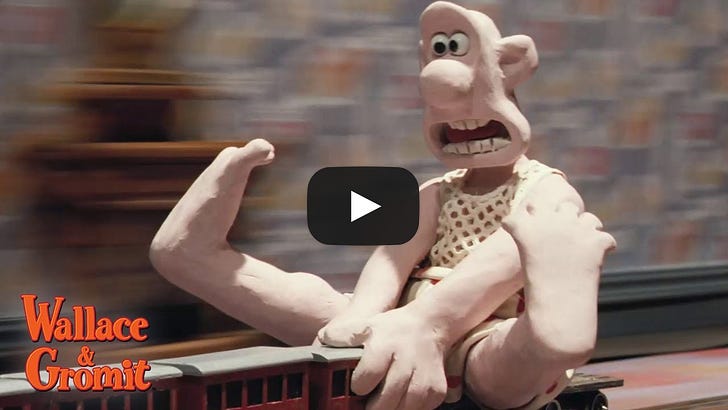 Park didn’t exactly plan to make a sequel — he and Aardman had already done that with Chicken Run: Dawn of the Nugget, the first feature project since the animation studio signed a distribution deal with Netflix in 2019. But after years of wondering how to bring Feathers back, Park knew he’d found the character who would bring the garden gnome concept together. Feathers “was a very natural remedy to a problem, and it really increased the ante for the whole idea,” he says. Wallace and Gromit films are still made more or less the same way they were back in the ’80s, with hand-crafted clay puppets and the painstaking attention to detail required by stop-motion animation. Vengeance Most Fowl also leans on traditional cinematic language to tell its story, particularly with not one but two silent characters — some of the most dramatic sequences involve Gromit and Feathers wordlessly staring each other down. “It is silent acting, isn’t it, really?” Park says. When initially designing Feathers back in the ’90s, Park realized how much power the character held with just two beady eyes and an eternally blank expression. “Villains are mysterious, and they don't take action and do the dirty work themselves. He became a more cinematic kind of character with just a slow camera move in, and then the right kind of musical kind of sting in the right place, and then a little blink — they tell you what he is thinking.” 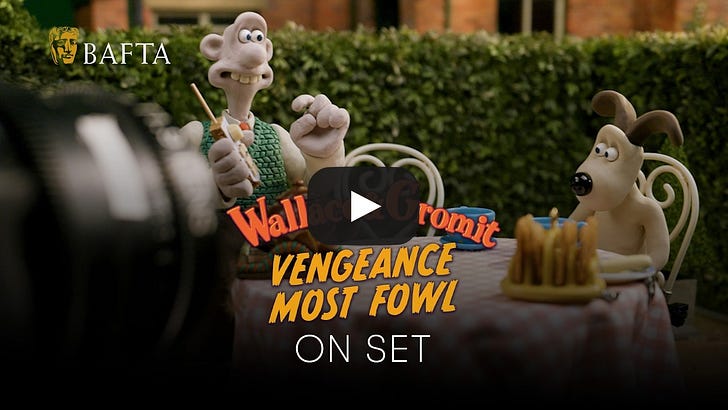 By introducing AI — even if it’s AI in the form of cheerfully singing garden gnomes — Park knows he’s also bringing very modern concerns to a franchise that has typically leaned into its timelessness. “Even though it’s set in the quaint world of Wallace and Gromit, it’s actually quite pointed, and it's about where people’s minds are right now with AI,” Park says of the feature, adding that it took him a beat to figure out how the hapless Wallace would learn about AI in the first place. “[The gnome] is highly sophisticated for what Wallace would make usually. Maybe he read about it in a book or something.” Follow us: X | Facebook | Instagram | Threads ICYMI
The Optionist, a newsletter about IP |



